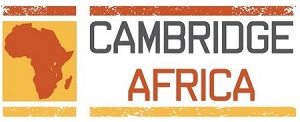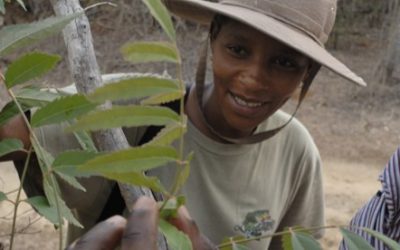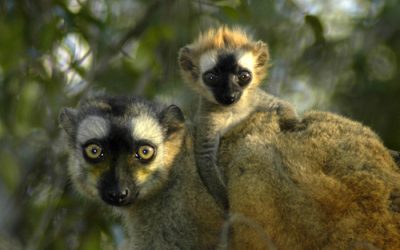TBA and Kabale University held a dynamic workshop to explore the technical skills gaps hampering ecosystem restoration in Uganda and propose how we might fill them. Experts from NGOs, government departments, universities, and the private sector spent two days in discussion and came up with some priority training activities that would make an immediate difference on the ground. In particular, they suggested that Uganda needs more capacity among the forest restoration managers themselves – both in NGO’s and Government departments so that they can maximise the chance that their programmes will be successful.
The workshop began by visiting a project that is restoring the Kagombe Central Forest reserve – a vibrant rainforest that is one of Uganda’s strongholds for chimpanzees. Here we met local community members who are carrying out the restoration work under the guidance of Uganda’s National Forest Authority and the Jane Goodall Institute. Kabale University reported on this project here.
The Africa Forest Landscape Restoration Initiative (AFR100) recognises the tangible benefits that restoring forests at the landscape scale will yield to biodiversity and society. Everyone at the workshop agreed that collaboration between civil society, government, and scientists is vital if such restoration projects are to succeed.
The workshop was part of a project contributing to the development of local capacity for landscape restoration in Uganda. The project focuses on the Albertine Rift because of the diversity of plants and animals it supports. It is supported by the Alborada Research Fund.
We are sure this project will catalyse a new collaboration between Kabale University and TBA in training and mentorship to address technical skill gaps in ecosystem restoration and make the suggestions from the workshop a reality.
![Kabale-welcomeOct2023[RosieTrevelyan]crop Rosie Trevelyan, Director of the Tropical Biology Association, got an official welcome to Kabale University by the office of the Vice Chancellor](https://tropical-biology.org/wp-content/uploads/2023/10/Kabale-welcomeOct2023RosieTrevelyancrop.jpg)
Rosie Trevelyan, Director of the Tropical Biology Association, got an official welcome to Kabale University by the Office of the Vice Chancellor.
Supported by the Cambridge-Africa ALBORADA Research Fund




